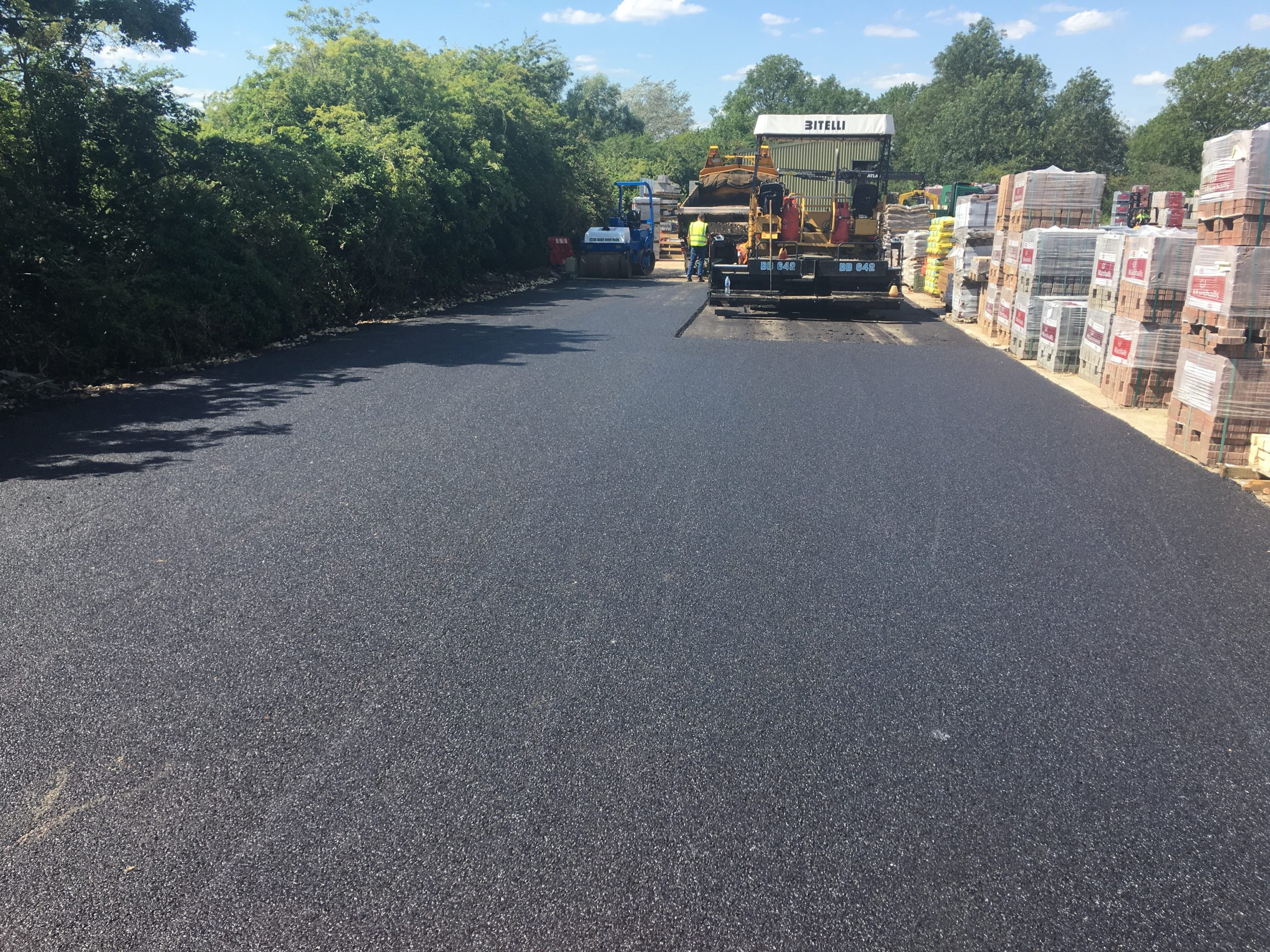
Asphalt stands out as the most widely chosen material for surfacing in the UK. Day in, day out, you see it, you use it; with all the benefits, there’s a reason for that.
Choosing the right material for your new driveway is a pretty important decision. Tarmac, resin bound, concrete, there are so many options out there to choose from, all of which have their pros and cons. You want performance but also aesthetics; with asphalt bringing the balance, you can’t go wrong.
Benefits of Asphalt for Driveways
Durability
Asphalt is more durable than other options like tarmac due to its flexibility. One of the main reasons it’s used on UK roads is down to this, with it better withstanding heavy loads.
Over time, cracks may form, but these can easily be repair, usually by yourself with a crack filler. Watco makes one, which is available online, but to ensure a job well done, it may be best to leave it up to specialist tarmac surfacing contractors.
Aesthetic Appeal
Asphalt looks quite similar to tarmac, but has a smoother appearance, making it more aesthetically pleasing. Holding its darker colour for longer, asphalt resists fading better than tarmac, giving you that newer look for longer.
Affordability
Compared to other driveway options like block paving, asphalt is usually a cheaper option. Depending on the shape and size of your driveway, asphalt typically costs in the region of £45-£55 per m2 to supply and install. This makes it roughly £10 more expensive per m2 than gravel, but £35-£80 cheaper than block paving per m2.
In the long run, maintenance is also cheaper too. In comparison to other options, asphalt is very low maintenance, requiring the occasional clean and minor repair.
Asphalt vs Tarmac: Which is Better for Driveways
Asphalt and tarmac are similar, but not the same. Made with bitumen instead of tar, asphalt is generally considered to be more durable than tarmac, making it better for the use of driveways. The reason for this is its flexibility.
Tarmac can crack over time as it’s more brittle, whereas asphalt has an inherent flexibility which makes it much more resistant to cracking. This is particularly beneficial over winter, as when temperatures drop and the ground freezes, tarmac is prone to breaking up as trapped water expands.
What Maintenance Asphalt Driveways Require
Generally speaking, asphalt driveways are very low maintenance. One annoyance often associated with them however is moss and algae growth, down to its textured surface. While its texture is smoother than tarmac, it’s still enough to retain moisture and create an ideal breeding ground for the spores to flourish.
It’s important to remember that with any option you think, you’ll have this issue. The best thing you can do is regularly clean your driveway with a pressure washer and use a moss killing product. There are some products out there like Moss Stop that’ll help kill it but also prevent it.
For more on driveway maintenance, check out the rest of our blog.
Tips for Caring for An Asphalt Driveway
There are a couple of things you can do to preserve the appearance of your asphalt driveway and ensure it lasts as long as possible.
Cleaning
Cleaning it a couple of times a year to remove dirt and debris is well worth doing. This can be done with a pressure washer on a low setting, special chemicals, and for an easy mess-free alternative, with a stiff brush if moss is the issue. Letting the dirt and debris build up not only ruins its appearance but can make it slippery and over time can cause damage to the surface.
Seal Coating
Every two to three years, you can seal coat your driveway to keep it looking fresh and maintain its weather resistance. Seal coating adds a protective barrier to asphalt, helping it resist the likes of oil, water and UV damage. Left unprotected, the top layer of the surface can oxidise and begin to break down, leaving it vulnerable to the elements.
Here To Help with Driveway Surfacing
If you need more advice or are looking for a reliable surfacing contractor, A&MT Contractors are here to help. A family-run surfacing contractor established in 1976, we’re highly experienced in driveway surfacing, having completed hundreds of projects across the whole of the UK. Whatever you need, wherever you’re located, our specialist team is here to help.
To learn more about our driveway surfacing services, contact us today.

